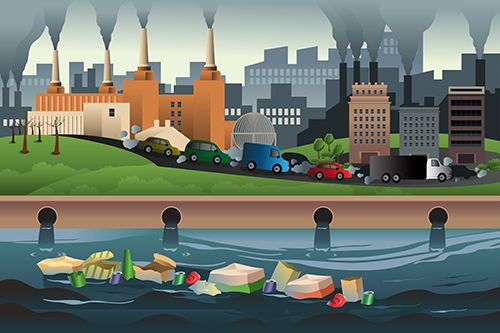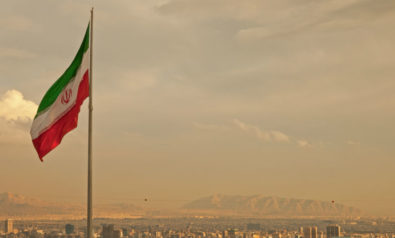There are “environmental extremists” on this planet, and Derrick Jensen believes they are called capitalists.
I have been sometimes labeled an environmental extremist, primarily because I believe the real world is more important than the economy, and because I believe we should do whatever is necessary to stop this extractive culture from killing the planet that is our only home.
Labeling someone an extremist is a standard rhetorical device to demonize the “extremist” and dismiss the person’s perspective. It’s kind of the loco-motion of the rhetoric world in that everybody’s doing it. The Nazis said the Jews were extremists. Slavers said abolitionists were extremists. The Founding Fathers of the United States complained of how poorly the Indians were treating them as they stole the Indians’ land.
Today, the US bombs extremists all over the world, oftentimes using as their reasoning the fact that extremists want to bomb the Americans, whom they label as extremists. Corporate apologists and other right-wingers often call environmentalists “extremists” for any reason. You want genetically modified organisms (GMO) labeled? They’ll call you an extremist. You want areas of the ocean off limits to fishing, they’ll call you an extremist. You want to stop logging of old growth forests? They’ll call you an extremist.
It happens on the personal level, too, as garden-variety abusers would never perpetrate their abuse if it weren’t for the extreme behavior of their victims.
Claim to Virtue
It always pays to present oneself as the reasonable one—the one in the reasonable center—and one’s opponent or enemy as the unreasonable one, the extremist.
Robert Jay Lifton wrote about how people can’t commit any mass atrocity without having what he calls a “claim to virtue.” That is, they must convince others and especially themselves that they’re not in fact committing an atrocity, but rather a positive good. Nazis weren’t committing mass murder and genocide, but purifying the Aryan “race.” The United States has never committed mass murder, land theft and genocide, but rather it has “manifested its destiny.” The dominant culture isn’t killing the planet, but “developing natural resources.”
All of this is true in our personal lives too. I have never once in my life been a jerk, by which I mean that every time I have objectively been a jerk, I have had my actions fully rationalized.
And likewise, by definition, almost no one will consider their own position extreme. Their own position is the reasonable one, or they wouldn’t have it. And their own position is in the center, once again by definition, because it is from their own perspective. This is as true of capitalists as it is of Christians, atheists, environmentalists, Scientologists or members of the Manson family.
All of which speaks to the power of rationalization.
But that doesn’t mean we should throw up our hands and give in to any sort of relativism. The fact that an argument is misused doesn’t mean the argument is never true. The Germans’ excuse for invading Poland to start World War II was that a detachment of Polish soldiers had attacked a German installation. The fact these “Polish soldiers” were really Germans in Polish uniforms doesn’t mean that no one can ever claim self-defense. The fact that people rationalize atrocities doesn’t mean no one ever commits atrocities, and it doesn’t mean that every statement everyone makes in defense of their actions is a rationalization.
The question becomes, where do we find solid ground?
Years ago, I got into an argument with a woman over whether rape is a bad thing. I said it was. She—and I need to say she was dating a postmodern philosopher at the time, and has since dumped him and regained her sanity—responded: “No, we can say that rape is a bad thing. But since humans assign all value”— and of course that statement is itself both inaccurate and a big part of the problem—“humans can decide whether rape is good or bad. There is nothing inherently good or bad about it. It just is. Now, we can certainly tell ourselves a series of stories that cause us to believe that rape is bad, that is, we can construct a set of narratives reinforcing the notion that rape is harmful, but we could just as easily construct a set of narratives that tell us quite the opposite.”
There’s one sense in which she was right: We can certainly create a bunch of stories that valorize rape (or that valorize the Aryan race and demonize Jews; or that valorize capitalism and demonize everyone who disagrees with it; and so on).
To bring this back to environmental “extremism,” we can certainly create a series of stories that cause us to believe it makes sense to deforest the planet, vacuum the oceans, impoverish the majority of humans. If the stories are effective enough at convincing us the stories are more important than physical reality, it does not only make sense to destroy the world, but we will feel good about it, and we will feel good about killing anyone who tries to stop us.
Not All Narratives Are Created Equal
But not all narratives are equal. For example, what if someone told you story after story extolling the eating of dog shit. You’ve been told these stories since you were a child. You believe them. You eat dog shit hot dogs, dog shit ice cream, General Tso’s dog shit. Maybe your enculturation is so strong that dog shit actually tastes good to you. But you have a physical body, and no matter what stories you tell yourself, this diet might make you sick or kill you. To make the example a little less silly, substitute the words Big Mac, Whopper or Coca Cola for dog shit.
Here’s the point: Physical reality eventually trumps narrative. It has to. It can just take a long time. In the case of this culture’s destruction of the planet, it has so far taken some 6,000 years (considerably less, of course, for its victims).
No matter what stories we tell ourselves, drinkable quantities of clean water are a good thing. I recently saw an article that began: “Fracking for oil and natural gas—or having enough water to drink. That’s the possible dilemma facing a number of countries including the United States, according to a new report released by the World Resources Institute last week—though experts disagree on the real implications of the report and what should be done about it.” The journalists evidently consider it perfectly sane to consider the choice between having water to drink and oil and gas from fracking a dilemma, and consider it perfectly reasonable for “experts” to disagree as to what should be done about this.
This is insane.
We are animals. We require clean water to drink. We require clean and healthy food to eat. We require a livable habitat. We require a livable world. Without them we die.
The health of the real world is the basis of a functioning, healthy, sustainable moral philosophy. It has to be, because it is the source of life.
Environmental Extremism Exists
And now, at last, to environmental “extremism.” I do believe environmental extremists exist. I believe it is extremist to intentionally fabricate quadrillions (with a q!) of lethal doses of Plutonium. I believe it is extremist to bomb the moon.
I believe it is extremist to construct so many dams—more than one large dam per day for hundreds of years—that 25% of this world’s rivers no longer reach the ocean. I believe it is extremist to build more than 70,000 dams over six-and-a-half feet tall in the United States alone (if we removed one of these dams every day, it would take more than 200 years to get rid of them all: salmon don’t have that time; sturgeon don’t have that time). I believe it is extremist to drive runs of salmon extinct, runs that were so big that entire rivers would be “black and roiling” with fish, runs so big you could hear them for miles before you would see them.
I believe it is extremist to drive passenger pigeons extinct, pigeons who flew in flocks so large they darkened the sky for days at a time. I believe it is extremist to cause 200 species per day to go extinct. I believe it is extremist to cause, as biologist Michael Soulè has said, vertebrate evolution to come to an end. I believe it is extremist to bathe the world in endocrine disruptors. I believe it is extremist to put so much plastic into the oceans that there is ten times as much plastic as phytoplankton (imagine that of every eleven bites you take, ten of them are plastic).
I believe it is extremist to have an economy based on infinite growth on a finite planet. I believe it is extremist to have a culture based on having been told to “go forth and multiply” on a finite planet. I believe it is extremist to destroy 98% of native forests, 99% of native wetlands, 99% of prairies. I believe it is extremist to go on destroying them.
I believe it is extremist to put in yet another shopping mall on the largest remaining prairie dog village in the Front Range of Colorado, especially when prairie dogs have been reduced by 98% of their range and population. I believe it is extremist to vacuum the oceans, such that if you weighed all the fish in the oceans, the total weight would be only 10% of what it was 140 years ago. Stolid scientists are saying the oceans could be devoid of fish within the next generation.
I believe it is extremist to murder the oceans. I believe it is extremist to murder the entire planet. I believe it is extremist to mass produce neurotoxins (e.g. pesticides) to release into the world. I believe it is extremist to change the climate. I believe it is extremist to steal land from every Indigenous culture. I believe it is extremist to commit genocide against every Indigenous culture. I believe it is extremist to have one culture overspread the entire planet.
I believe it is extremist to believe the world was made for you. I believe it is extremist to act as though you are the only species on the planet. I believe it is extremist to act as though you are the only culture on the planet.
I believe there are “environmental extremists” on this planet, and I believe they are called capitalists. I believe they are called “members of the dominant culture.” I believe that unless they are stopped, these extremists will kill the planet. I believe they must be stopped.
The views expressed in this article are the author’s own and do not necessarily reflect Fair Observer’s editorial policy.
Photo Credit: Woeii / Artisticco / Shutterstock.com
 We bring you perspectives from around the world. Help us to inform and educate. Your donation is tax-deductible. Join over 400 people to become a donor or you could choose to be a sponsor.
We bring you perspectives from around the world. Help us to inform and educate. Your donation is tax-deductible. Join over 400 people to become a donor or you could choose to be a sponsor.
Support Fair Observer
We rely on your support for our independence, diversity and quality.
For more than 10 years, Fair Observer has been free, fair and independent. No billionaire owns us, no advertisers control us. We are a reader-supported nonprofit. Unlike many other publications, we keep our content free for readers regardless of where they live or whether they can afford to pay. We have no paywalls and no ads.
In the post-truth era of fake news, echo chambers and filter bubbles, we publish a plurality of perspectives from around the world. Anyone can publish with us, but everyone goes through a rigorous editorial process. So, you get fact-checked, well-reasoned content instead of noise.
We publish 2,500+ voices from 90+ countries. We also conduct education and training programs
on subjects ranging from digital media and journalism to writing and critical thinking. This
doesn’t come cheap. Servers, editors, trainers and web developers cost
money.
Please consider supporting us on a regular basis as a recurring donor or a
sustaining member.
Will you support FO’s journalism?
We rely on your support for our independence, diversity and quality.




















Comment